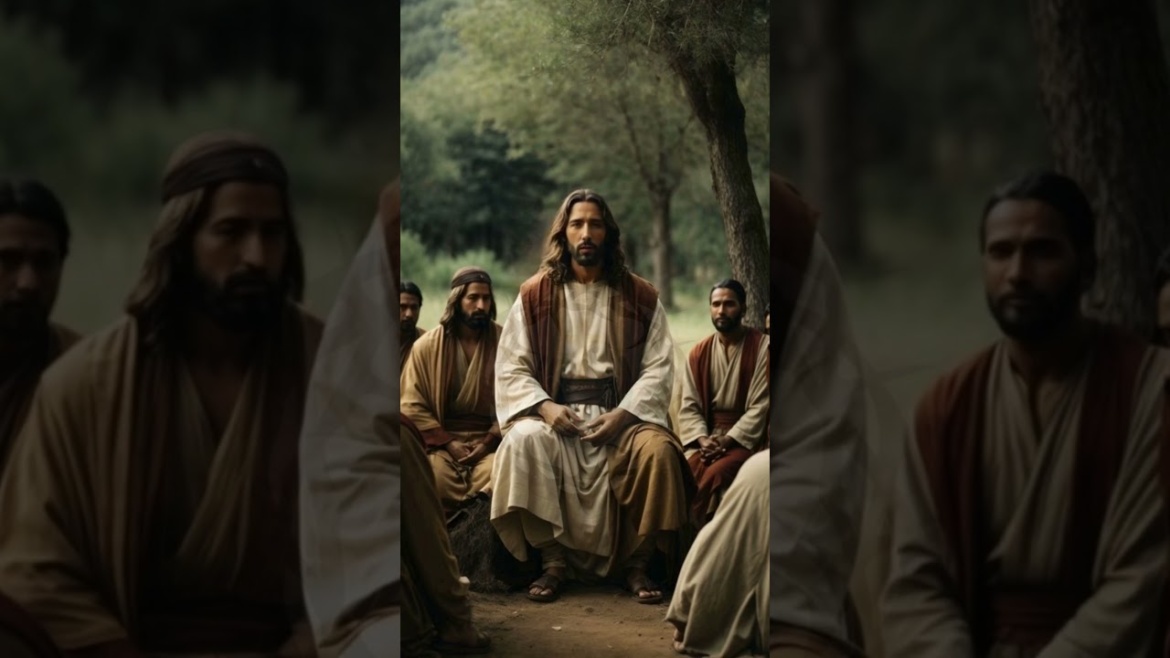The Significance of “Moreover when ye fast, be not, as the hypocrites, of a sad countenance: for they disfigure their faces, that they may appear unto men to fast. Verily I say unto you, They have their reward. But thou, when thou fastest, anoint thine head, and wash thy face; That thou appear not unto men to fast, but unto thy Father which is in secret: and thy Father, which seeth in secret, shall reward thee openly.”
The phrase “Moreover when ye fast, be not, as the hypocrites, of a sad countenance: for they disfigure their faces, that they may appear unto men to fast. Verily I say unto you, They have their reward. But thou, when thou fastest, anoint thine head, and wash thy face; That thou appear not unto men to fast, but unto thy Father which is in secret: and thy Father, which seeth in secret, shall reward thee openly.” is a powerful christian law used by Jesus in Matthew 6:16-18 from the Sermon on the Mount. It is known as the Lord’s Fast, is a central teaching in Christianity on how to fast. It addresses the practice of fasting and warns against the hypocrisy of those who fast for public attention rather than true spiritual devotion. Jesus instructs his followers to fast in private, for seeking God’s approval rather than the praise of others.
Context of the Phrase
The law appears within Jesus’ Sermon on the Mount, a collection of teachings focusing on right living and morality for spreading God’s message. It is part of Jesus’ Sermon on the Mount, in which he teaches his followers about the importance of living a life of righteousness, sincerity and humility, and warns against the hypocrisy of those who only act out of a desire for praise. He is telling them that they should not be concerned about what other people think of them, but rather about what God thinks of them. He is also telling them that they should not try to gain recognition for their good deeds, but rather should do them quietly and without expecting anything in return. In the context, fasting was a common practice among Jews in Jesus’ day, often observed as a way of seeking God’s forgiveness and guidance. However, some people used fasting as an opportunity to show off their piety and gain the respect of others. Jesus condemned this hypocrisy and emphasized the importance of fasting from an authentic desire to connect with God.
Significance of the Phrase
The law reminds us that true spirituality is not about external appearances but about inner transformation. When we fast, we should not be concerned with how others look to us but with how our actions reflect our commitment to God.
Here are some key points:
Spirit’s Righteousness: It reminds us that our actions should be motivated by our love for God and our desire to do what is righteous, not by a desire for attention or praise.
Temper’s Purpose: It reminds us that God is our Father, who sees in secret, sees our hearts and knows our purposes, even when we try to hide them from others.
Soul’s Will: It reminds us that living in spirit is not an end in itself, but a means of drawing closer to God for seeking his will and blessing in our lives.
Body’s Worship: It reminds us that our faith should not be a performance for others to see, but a genuine worship with God and living a life that reflects that worship.
Application of the Phrase
The law has practical applications for our daily lives. It applies to us today in the same way that it applied to Jesus’ followers. When we are tempted to act for the approval of others, we should remember Jesus’ words and strive to do the right thing for the right reasons.
Here are some key points:
Practical Righteousness: We should not try to make a show of our faith or our good deeds. We should also not seek recognition or praise for what we do. Instead, we should focus on doing what is right, simply because it is right.
Practical Purpose: We should be mindful of our purposes with true spiritual devotion when we engage in spiritual practices such as alms, prayer and fast, and not be mindful of seeking personal gain or recognition.
Practical Will: We should know that true spirituality is rooted in a genuine will to connect with God and serve others according to God’s character, not an attempt to seek personal gain or recognition.
Practical Worship: We should understand that we must not be tempted to show off or seek the approval of others besides God. Instead, we should remember Jesus’ words and strive to act with sincerity and humility, simply because it is a right way to connect with God.
In summary, the law on fasting reminds us that true spirituality is about authenticity and humility. When we fast, we should not seek the approval of others but the approval of God. By approaching fasting with a pure heart and a genuine desire to connect with God, we can experience its transformative power in our lives.
THE CHILD IS INTENDED INTO ONE SUB & NINE EXTREMES
« Samsara Extreme Of Heaven In Child Intended To Exist »
WHAT IS ✨ COLD CHILD SPACE? IT IS JUST CHILD EXTREME!
« Child Extreme’s Code & subExtreme’s Law »













